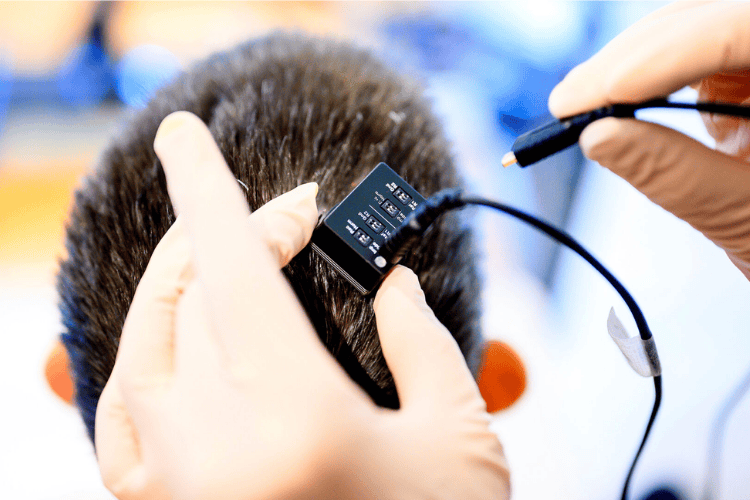
Researchers at UC Berkeley and UC San Francisco are making a huge breakthrough in brain-computer interfaces (BCIs) with their latest brain-to-voice neuroprosthesis. They’re working on restoring speech for people with severe paralysis by turning brain signals into real-time, natural-sounding speech.
One big challenge they had to tackle was cutting down the delay time between thinking and speaking. The new system can produce speech under a second making communication feel natural without much delay.The system works by analysing the brain signals from the motor cortex, these signals then decoded by AI and later turned into audio.
Ann, one of the testers, silently attempted to speak different phrases while the AI tracked her neural brain activity. To make it even better, the researchers used old recordings of her voice, so it could train and produce a voice similar to her with AI. Unlike older versions that had a long delay, this new system works almost instantly, making conversations feel natural. The model also demonstrated the ability to generate words it had not been trained on, proving its adaptability.
This breakthrough could eventually help people with speech disabilities communicate in real time and may even lead to applications in other fields, such as in assistive technology, human-computer interaction, and medical rehabilitation.

